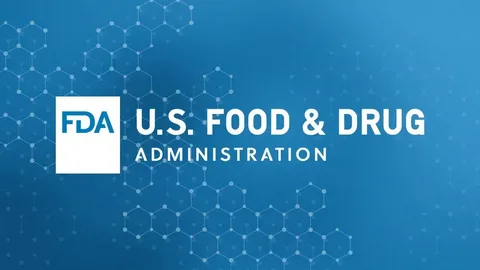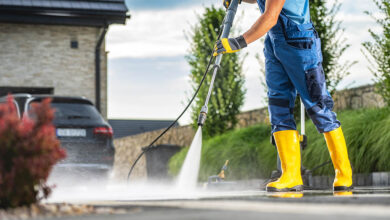FDA Inspector Chris Czajka: Profiles, Key Findings, and Analysis

Christopher R. Czajka, a highly respected Consumer Safety Officer with the FDA, plays a pivotal role in ensuring public safety through rigorous inspections of pharmaceutical, medical device, and other regulated facilities.
With over 140 inspections under his belt, Czajka’s work highlights critical patterns in regulatory compliance, offering insights into both successes and areas for improvement within various industries.
This blog looks into his career, inspection findings, and analysis of his contributions to FDA enforcement.
Profile of FDA Investigator Christopher R. Czajka
Chris Czajka is a Consumer Safety Officer stationed in Seattle, Washington, with the Department of Health and Human Services (DHHS) FDA Office of Regulatory Affairs (ORA). He is part of a team that oversees compliance within the FDA’s Office of Medical Products and Tobacco (OMPT), focusing on ensuring adherence to safety standards for products like pharmaceuticals, medical devices, and biologics.
With a career spanning multiple years, Czajka has amassed an impressive track record, having conducted 148 inspections, issuing 103 Form 483s (observations of non-compliance) and 10 Warning Letters.
His inspection responsibilities range across diverse global locations, including multiple sites in the United States, Japan, and Europe. Over his career, Czajka has managed inspections with varied durations, from a day-long inspection to a detailed 241-day investigation.
Key Areas FDA Inspector Focuses on During Inspections
FDA inspectors ensure compliance by checking manufacturing practices, labeling accuracy, quality systems, documentation, and complaint handling.
- Good Manufacturing Practices (GMP): Inspecting cleanliness, equipment maintenance, and quality control processes.
- Labeling and Packaging Accuracy: Ensuring proper product labeling and storage to prevent mislabeling or misuse.
- Quality Assurance Systems: Verifying effective quality management systems and validation procedures.
- Record Keeping and Documentation: Reviewing proper documentation for product testing, production, and adverse event reports.
- Complaint Handling and Investigations: Assessing how complaints are managed and how corrective actions are implemented.
Total Inspections and Findings
Czajka’s total inspections include a wide spectrum of industries, primarily focused on ensuring that organizations meet the FDA’s strict standards for manufacturing practices, documentation, and quality control procedures. His average inspection time is 9.8 days, which reflects the thoroughness and depth of his investigations.
Here are some key figures associated with Czajka’s work:
- Total Inspections: 148 inspections conducted across various organizations.
- 483s Issued: 103 Form 483s, which point out any violations or deficiencies observed during inspections.
- Warning Letters Issued: 10 letters warning companies of non-compliance and possible regulatory actions.
- Longest Inspection: 241 days, showcasing the depth of the investigations.
- Shortest Inspection: 1 day, indicating some inspections may be routine or less complex.
Recent Inspection Highlights
A selection of recent inspections conducted by Czajka sheds light on the wide variety of facilities and industries he oversees. Below are examples of some notable inspections from 2024:
- AAA Molybdenum Products Inc., Broomfield, United States (December 5, 2024)
- PETNET Solutions, Inc., Spokane, United States (September 27, 2024)
- K.C. Pharmaceuticals, Inc., Pomona, United States (August 28, 2024)
- Jubilant HollisterStier LLC, Spokane, United States (June 6, 2024)
- Taenaka Kogyo Co., Ltd., Mobara, Japan (April 12, 2024)
These inspections focus on manufacturing processes, quality assurance, and compliance with regulations concerning drugs, medical devices, and pharmaceutical products. Czajka’s oversight ensures that these companies maintain high safety standards and resolve any deficiencies identified.
Analysis of Common Inspection Findings
Czajka’s inspections frequently result in the issuance of Form 483s, which highlight deficiencies in companies’ operations. While each inspection may have unique findings, several key issues have emerged repeatedly across various industries. These findings are often related to the following:
- Manufacturing Process Deficiencies: Poor or inadequate process controls lead to inconsistent product quality, raising significant safety concerns.
- Documentation and Record Keeping: Failure to maintain proper documentation, including batch records and testing results, often results in regulatory penalties.
- Quality Control Issues: Lack of adequate testing and quality assurance procedures often results in violations.
- Unclean or Improper Facilities: Substandard conditions in manufacturing or storage areas can lead to contamination or cross-contamination risks.
- Labeling Violations: Incorrect or misleading labeling, especially in pharmaceuticals, can lead to serious health risks.
The Role of FDA Investigators Like Czajka
FDA investigators like Czajka play a crucial role in upholding public health by ensuring that manufacturers adhere to rigorous regulatory standards. Their work extends beyond identifying violations to providing companies with opportunities to rectify deficiencies and improve overall safety. Czajka’s inspections help prevent unsafe products from reaching the market and reduce the risks of public harm from defective medical devices or pharmaceuticals.
What Can We Learn from Czajka’s Inspections?
Several key takeaways emerge from Christopher Czajka’s inspection history:
- Thoroughness is Key: The length of inspections, especially long ones like the 241-day investigation, demonstrates the importance of detailed scrutiny. Thorough reviews ensure that all aspects of a company’s operations are considered, from product quality to employee training.
- Global Reach: Czajka’s inspections are not limited to the U.S. but extend to international companies as well, showcasing the global nature of FDA enforcement. His work in Japan and Europe indicates the FDA’s commitment to upholding safety standards internationally.
- Continuous Monitoring: The issuance of warning letters and observations reflects ongoing monitoring and follow-up. Companies are expected to respond to these notices and take corrective actions to avoid further penalties or product recalls.
- Collaboration with Co-Inspectors: Czajka often works with other investigators like Anita Narula and Gerard P. De Leon. This collaborative approach ensures a comprehensive review of facilities and their operations.
Challenges Faced During Inspections
While Czajka’s inspections yield important insights, the role of an FDA investigator is not without challenges. Some of the obstacles that investigators like Czajka face during their inspections include:
- Lack of Cooperation from Companies: In some instances, companies may resist sharing information or be slow to provide necessary documentation, hindering the inspection process.
- Language and Cultural Barriers: When inspecting companies in foreign countries, language barriers or cultural differences may complicate communication and make the inspection process longer.
- Resource Constraints: The sheer volume of inspections and limited time available can impact the thoroughness of some investigations. The FDA must balance competing priorities while ensuring each inspection receives the attention it deserves.
The Bigger Picture: FDA’s Role in Global Safety
Czajka’s inspections are just a small piece of the larger puzzle in ensuring global public safety. The FDA plays a significant role in the international regulation of food, drugs, and medical devices.
Through diligent inspections and enforcement, the FDA helps reduce the risks posed by unsafe products, benefiting consumers across the globe.
Conclusion
Christopher R. Czajka’s contributions as an FDA Investigator reflect his dedication to safeguarding public health. His extensive experience, spanning over a decade of inspections and enforcement, highlights the importance of thorough regulatory oversight in maintaining safety standards.
Through his work, Czajka has not only identified critical violations but has also contributed to improving compliance within the industries he oversees.
A renowned intelligence platform like Atlas Compliance can further enhance a company’s ability to track inspection trends, gain insights into potential risks, and stay ahead of regulatory challenges, ensuring that inspections are not only predictable but also more manageable.



